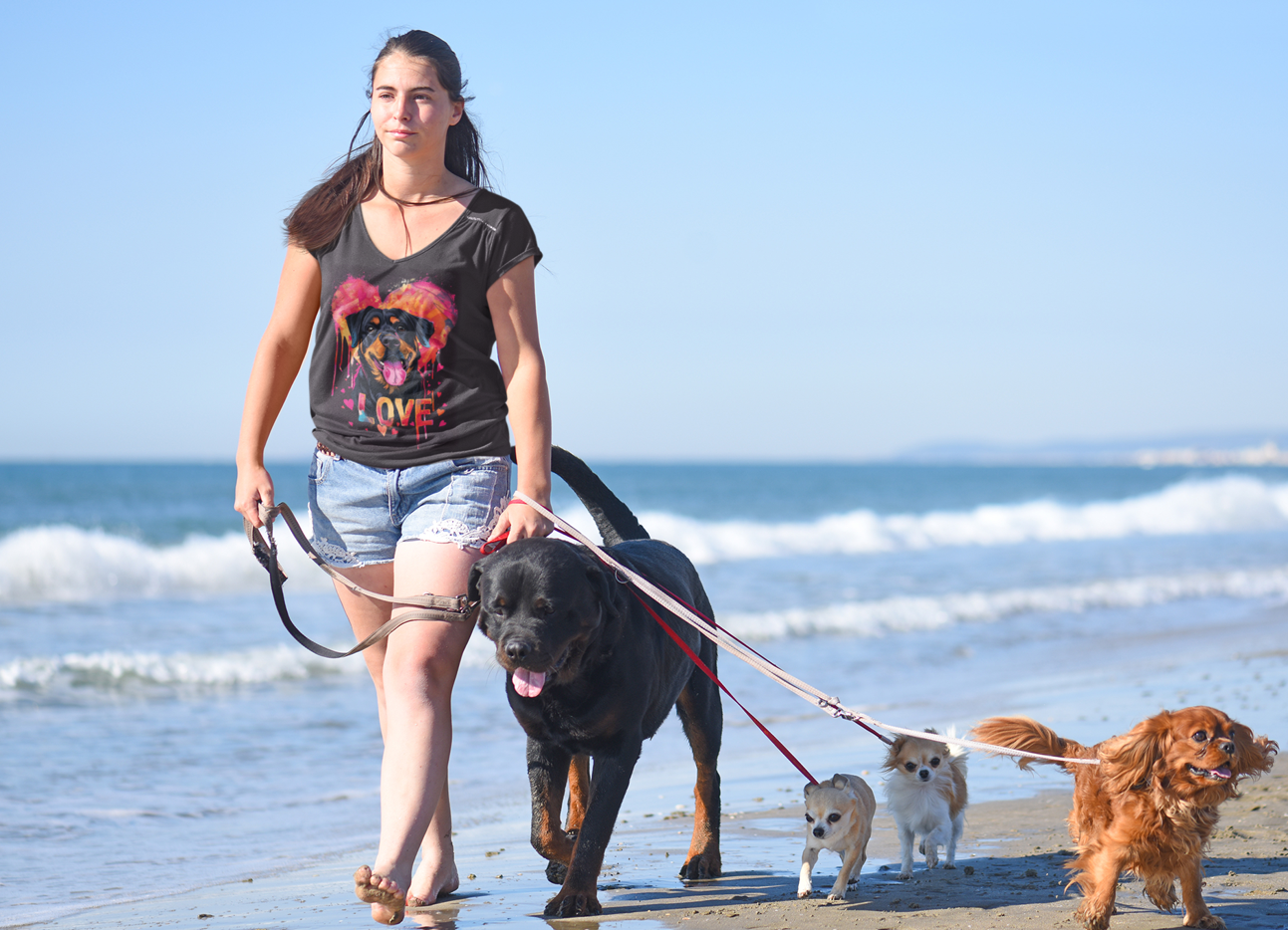Information All About Rottweilers
Introduction to Rottweilers
The Rottweiler, with its powerful build and loyal nature, is a beloved breed known for its strength, intelligence, and protective instincts. Originating from Germany, these majestic dogs have earned a reputation as devoted family companions and versatile working dogs.
Rottweiler Characteristics:
-
Temperament: Rottweilers are known for their confidence, courage, and loyalty. They are affectionate and devoted to their families, yet possess a natural guarding instinct that makes them excellent protectors.
-
Exercise and Activity: As active and energetic dogs, Rottweilers require regular exercise and mental stimulation to stay healthy and happy. Daily walks, playtime, and training sessions are essential to channel their energy in a positive way.
-
Grooming Needs: Rottweilers have a short, dense coat that requires minimal grooming. Regular brushing and occasional baths help keep their coat clean and healthy.
-
Lifespan and Health Considerations: Rottweilers typically live for 9 to 12 years and are generally healthy dogs. However, they may be prone to certain health issues, including:
- Hip Dysplasia: A common orthopedic condition where the hip joint doesn't develop properly, leading to discomfort and mobility issues.
- Elbow Dysplasia: Similar to hip dysplasia, this condition affects the elbow joint and can cause lameness and pain.
- Osteosarcoma: A type of bone cancer that commonly affects large breeds like Rottweilers.
- Heart Conditions: Rottweilers may be predisposed to certain heart conditions, including dilated cardiomyopathy (DCM).
- Bloat: Also known as gastric torsion or GDV, this life-threatening condition occurs when the stomach twists, trapping gas and fluids inside.
Training and Socialization of Rotweilers
-
Training Tips: Rottweilers are intelligent and eager to please, making them relatively easy to train with positive reinforcement techniques. Consistency, patience, and firm leadership are key to successful training sessions.
-
Socialization: Early socialization is crucial to help Rottweilers become well-adjusted and confident adults. Expose them to various people, animals, and environments to prevent fearfulness or aggression.
Health and Care
- Nutritional Needs: Provide a balanced diet suitable for Rottweilers' age, size, and activity level. Avoid overfeeding and monitor their weight to prevent obesity, which can exacerbate health issues.
-
Exercise and Fitness: Regular exercise is essential to keep Rottweilers physically and mentally stimulated. Engage them in activities like walking, jogging, or obedience training to satisfy their need for activity and mental challenges.
-
Regular Veterinary Care: Schedule routine check-ups, vaccinations, and dental exams to monitor your Rottweiler's overall health and well-being. Early detection and treatment of any health issues are crucial for their longevity.
History and Origins:
The Rottweiler's history can be traced back to ancient Rome, where they were bred as herding and guarding dogs. Their strength, intelligence, and versatility made them invaluable working companions for tasks like pulling carts, herding livestock, and protecting property.
Choosing the Breed:
Consider your lifestyle, living situation, and experience with large breeds when deciding if the Rottweiler is the right breed for you. Their loyal and protective nature makes them excellent family guardians, but they require proper training, socialization, and responsible ownership.
Responsible Rottweiler Ownership:
When acquiring a Rottweiler, choose reputable breeders or consider adoption from rescue organizations. Responsible ownership involves providing proper care, training, and socialization to ensure they thrive in their new home. Prepare your home and family for the arrival of your new Rottweiler to ensure a smooth transition and a lifelong bond.
Back to Rottweiler collection
Fast shipping
creativity and passion
Secure payment

Fetch Our Newsletter!
Join thousands of fellow dog lovers who receive tail-wagging updates, special offers, and sneak peeks at new arrivals directly in their inbox.
